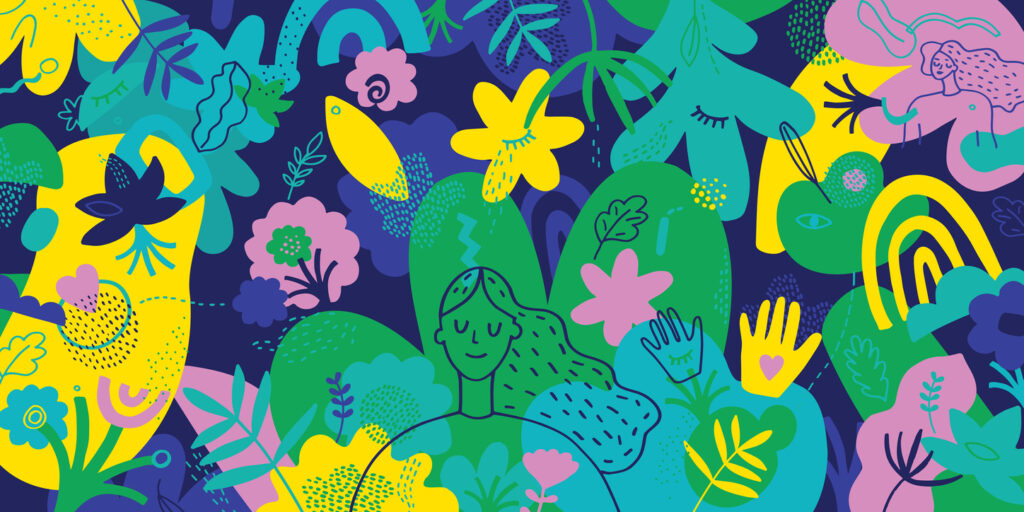Have you heard of Ikigai?
When I mention this phrase a few people reply, “Oh yes, I love it!”, but I do feel that Ikigai followers are still a relatively small minority.
Ikigai is a Japanese philosophy, or way of living. Iki means to live and Gai means reason. The French phrase, ‘Raison d’être’ follows the same vein.
There is a chain of islands in the southern-most part of Japan called Okinawa, where its people enjoy the highest life expectancy of all the ‘blue zones’: areas of the world where people live longer. Okinawa residents include a 102 year old Karate master, a 100 year old fisherman and a 102 year old who said that holding her great-great-great grand-daughter was like ‘leaping into heaven’.
When you find something that you love, you’re good at, the world needs and you can be paid for, then you are truly living your Ikigai
So why does knowing what your Ikigai is make life easier?
People have spent the last two years making huge changes, personally and professionally. Some have decided to create new businesses, some have decided to retire earlier than planned.
The people left with you have had to shift to flexible working, move out of and perhaps back into the office. As the Covid restrictions relax, a lot of people will now start to implement the changes they have been talking about in the search for less stress, better working conditions and a more balanced life.
This is your opportunity to re-inspire individuals. To regain communication, to re-inspire them in their role and to ensure less staff attrition and more engagement. Find where their Ikigai crosses over with your organisation.
Let’s start by breaking down the elements of Ikigai into four main life areas:
- What you love
- What you are good at
- What the world needs
- What you can be paid for
Next break these areas down further into where they overlap:
- If you love something and the world needs it that’s your mission
- If you love something and you’re good at it that’s your profession
- If the world needs it and you can be paid for it that’s a vocation
- If you love it and you’re good at it that’s a passion
It may help if you draw out your Ikigai. Get a cup or template and draw four interlocking circles. Label the outer four with the first categories and add the second categories in where two circles overlap. If there is one activity that fits with all eight categories that is your Ikigai.
When you find something that you love, you’re good at, the world needs and you can be paid for, then you are truly living your Ikigai.
For some people they can easily map this out. For others they may live their Ikigai through separate activities like work and a hobby. Some people may just live from Monday to Sunday without stopping to think why they do what they do – and of course all of the above work.
There are times in life when we stop to ponder the meaning of life. The last couple of years have of course given us that opportunity. When I suffered a life changing stroke in 2010 I also had that opportunity; being unable to work or even drive my car for a period gave me that headspace to check in and assess my life (plus it was possible that I could have lost my life that day, which definitely makes you think!).
As I value my health and my time the difference I can make will hopefully create a bigger ripple in the world!
During my ponderings I realised that I had always wanted to make a difference: working in customer service in a bank, as a company accountant focusing on future goals and latterly as a holistic therapist helping people to improve their health.
I realised though, that I had never put myself first. As a mum, as a wife, as a business owner; everyone in my life always went before me. I had helped many people and made a difference in my life, but if I had lost my life that day through neglecting my own health then my purpose would only be half fulfilled.
I continued with my mission of making a difference, but added in a new level: to myself, to my family and friends, to my clients and to the wider world. Through my work and life today I can absolutely say I am living my Ikigai. As I value my health and my time the difference I can make will hopefully create a bigger ripple in the world!
[embed-slice:21]
So as you are reading this, stop and ponder your own life
What do you love to do and are you doing it? Perhaps there is something that you love to do but haven’t had time for a while. What are you good at? Maybe ask family, friends or colleagues what they think you are good at it if you are struggling to think of something. What can you be paid for, in addition to what you are currently doing? Hobbies can be turned into businesses, or perhaps there is a ‘side hustle’ that you have been thinking about.
Finally, consider what the world needs – perhaps you volunteer at a local club or charity. Perhaps you donate part of your income or could start doing this. Maybe there is a subject that gets you on your soapbox and you hadn’t realised how important it is.
Remember, finding your purpose may not be an overnight realisation
If you have listed the categories above or drawn a diagram, you may find that initially you only fill out a few sections. If you re-visit this over a few days or weeks you may find that you link more areas together. It could be that you need to learn a new skill, or enquire about volunteering.
Remember, finding your purpose may not be an overnight realisation. It could be that you suddenly have an aha moment and bring everything together while washing up or driving somewhere. Having a few separate activities that tick all the boxes is perfectly fine too.
When you do find your Ikigai, it helps with where you focus your time and attention. It also allows you to keep going through challenging times as you know why you do what you do. It may also add years to your life and more importantly, life to your years.











